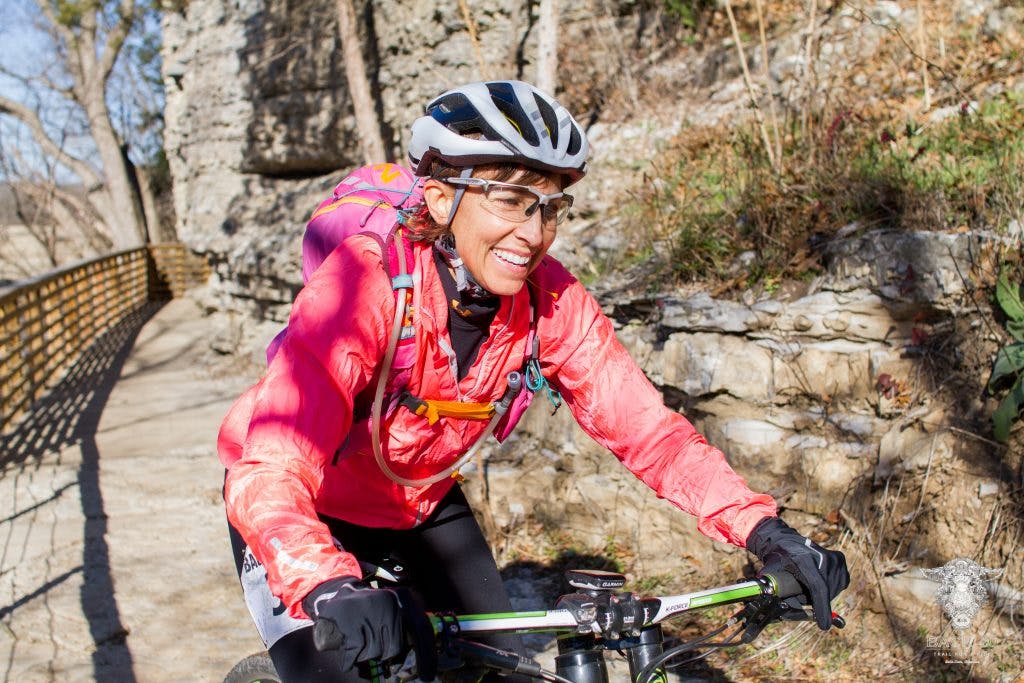Explore Our Network of Sites
Search
By:
How do you create safe, connected ways to ride bicycles? Small towns can offer some great ideas.
Defined as any place with a population of fewer than 100,000 people, many of our top small towns scored high in Acceleration because they’re focused on investing in improved biking. Eighty percent of this score comes from the scale and variety of infrastructure and encouragement programs, as reported by city officials in the PlacesForBikes City Snapshot. Twenty percent of the score comes from local public opinions about bike investments gathered by the annual PlacesForBikes Community Survey.
Small towns often have low-stress roads and people tend to drive at slower speeds. And highways often don’t run right through the middle of small towns, meaning they have the foundation of a really strong bicycle network and a natural environment for bicycling.
Let’s take a look at what some of our high-scoring small towns are working on to get more people riding bikes.
Many small towns have seen the economic benefits of increasing bike and foot traffic. Two decades ago, Ferndale made its downtown area more pedestrian-friendly by narrowing West Nine Mile Road and adding on-street parking and landscaping. The result has been a return of bike and pedestrian traffic and the arrival of new stores and restaurants. The city has continued to become more attractive to bikes and pedestrians by further reducing traffic lanes and adding bike lanes around downtown.
Jon Hughes, owner of Downtown Bike Shop, says that Ferndale has grown to the point that biking is just the most convenient way to get around. “I opened my shop in Ferndale ten years ago because it’s such a nice downtown and so many people were already walking and riding their bikes to get almost everywhere.” Hughes says that he’s seen more and more bike lanes go in, which has encouraged lots more people to ride a bike instead of drive a car. In partnership with the city, Downtown Bike Shop puts on a series of bike events for all ages and abilities. From family rides to health and fitness rides, to bike rodeos and mechanic classes.
Connecting people to trails and recreation is a great way for small towns to encourage more ridership. The 37-mile Razorback Regional Greenway stretches from Bella Vista to Fayetteville, and connects people to schools, parks, community centers, and downtown areas. The paved path also connects to 250-miles of mountain biking trails. This system of trails alone have put Northwest Arkansas on the map in terms of bikeability.
According to Cassi Lapp, the Communications Director in Bella Vista, each town in the region sort of specializes in a specific set of trails and features. Bella Vista boasts traditional cross-country trails. Lapp says, “You can go to the next town over to get technical trails, or a bike park, or a downhill track. It’s cool to be part of a region where everyone is unique but part of something bigger.”
In addition to mountain biking, people in the community are using the trails for running, hiking, walking their dogs, playing with their kids, and bird watching. One thing that Bella Vista has worked hard on is marking the trails. Lapp says, “We have a really great marking systems — each trail is labeled with ability levels, and all street crossings are well marked with signage.”
Lapp says the town has already seen an influx of people moving to the area to be near the trails, either as a primary residence or as a seasonal rental. Bella Vista is working to add 40 new miles of trails to their existing 50-miles. They should open the new system later this year.

Between the Pacific coast and wine country, Lompoc enjoys picturesque rolling hills. Not far from Buellton (a high scorer in our Safety rating) and the Santa Ynez Valley, Lompoc has ideal year-round weather for bike riding.
Joshua Leard, a civil engineer for Lompoc, says that it’s a continuous process to advance mobility and transportation in the area, but that bicycling is a huge part of their mobility plan. “Over the years we have completed a bicycle transportation plan, constructed Class I bike paths, restriped roads for Class II bike lanes, improved our traffic signals to accommodate bikes, posted city bike route maps online and at primary entrances to the City, and many other safety and convenience improvements that make the City a welcome place for bicyclists of all skill levels.”
Moving forward, Leard says Lompoc will continue work to complete their network, and to connect to other regional networks in the area.
Recommendations for small towns